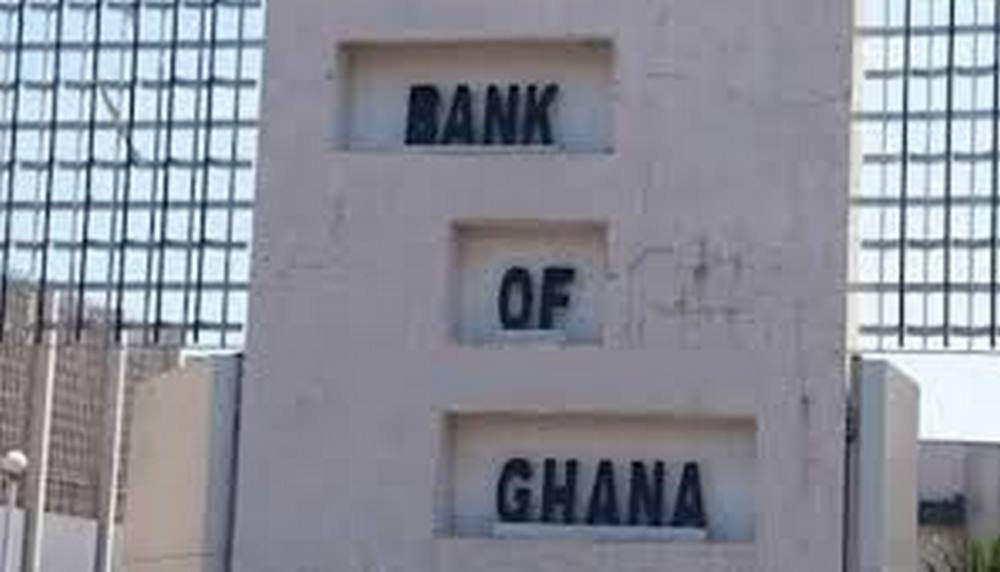
Ginger and chilli pepper are the two main commodities highly produced in the Ahafo Region, one of the smallest regions in the country.
Several farmers, including females in the area, are investing in the production of the commodities, as they are being produced in commercial quantities.
It is, therefore, not surprising that the region, with only six administrative municipal and district areas, continues to increase ginger and chilli pepper production every year.
Statistics available from the Ahafo Regional Department of the Ministry of Food and Agriculture (MoFA) show that the area produced 18,920 Metric Tonnes (MT) of ginger in 2021 and increased the commodity’s production to 21,125 MT in 2022.
Again, the data indicated that the region produced 9,228 MT of chilli pepper in 2021 and also increased the production to 12,319 MT in 2022.
District production
The Asutifi South District is the leading producer of these two commodities.
In 2021, the district produced 1,760 MT of chili pepper as against 2,994 MT in 2022 while Asutifi North District produced 1,689 MT of pepper in 2021, as compared to 2,059 MT in 2022.
The Asunafo South District produced 1,689 MT of pepper in 2021, and it increased its production to 1,969 MT in 2022 while the Asunafo North Municipality produced 1,645 MT of pepper in 2021, as compared to 1,701 MT in 2022.
In 2021, the Tano North Municipality produced 1,289 MT of pepper as against 2,083 MT in 2022 while the Tano South Municipality produced 1,156 MT of pepper and increased its production to 1,513 MT in 2022.
Huge losses
Solar and sun dryer facilities which are used to dry ginger and chili pepper
However, farmers who are actively involved in the production of these commodities end up incurring huge losses due to the lack of a processing factory and ready market in the area.
The Ahafo Regional Director of Agriculture, Kingsford Nyame, told the Daily Graphic that the lack of marketing was one of the major challenges which had frustrated farmers over the years.
He said farmers in the area could produce more of the commodities to feed the entire country, but their main challenge was marketing.
“During the peak production season of the two commodities, several farmers visit my office asking for me to help them get access to the market,” Mr Nyame said.
Factory
In a bid to resolve post-harvest losses, Newmont Africa has revived the defunct Asutifi Processing and Services Centre Ltd (APSC) at Subriso near Acherensua in the Asutifi South District.
The value-addition processing facility, which has been revamped at the cost of $4 million, is to process ginger and chilli pepper into finished products.
The factory is expected to package products such as dried whole pepper and powdered pepper, as well as dried sliced ginger and powered ginger.
The centre is also expected to render other services such as water pump hiring and transportation of farm produce.
The factory has a total production capacity of four MT per eight hours.
It is expected to produce two MT of ginger and chilli pepper in every eight hours.
The facility is fully funded by Newmont and supported by GIZ to provide critical technical support towards the design and implementation of programmes with Injaro Investment Advisors, a leading implementing partner.
Shut down
The Human Resources and Administrator of the facility, Cletus Ayi Dong-Deme, told the Daily Graphic that the centre was first established in 2013 by a group of farmers (Farmer Cooperative), but was shut down in 2018 due to a lack of funding, powerful machines and lack of commitment to the facility.
He said Newmont refurbished it, installed powerful machines and recruited 15 people to operate the facility.
Mr Dong-Deme explained that more workers would be recruited over time.
He said the centre had, so far, registered 574 ginger and pepper farmers who were interested in working with the facility.
Mr Dong-Deme said the factory had provided farm inputs and trained the farmers to produce and sell their products to the factory.
He said the facility had come to stay, as measures such as an irrigation scheme and enrolling of more farmers and special interventions had been put in place to boost production of the raw materials to sustain its operation.
Pricing
A ginger farmer, Musah Isaka, told the Daily Graphic that a 50kg bag of ginger was sold in the market at GH₵150, but the factory purchased it at GH₵250.
The Regional Director of Agriculture, Mr Nyame, said the inauguration of the factory had come as a big relief to the farmers and the department.
However, he said the capacity of the factory would not be able to absorb all the produce in the area and appealed to Newmont to expand it.
Mr Nyame appealed to traditional rulers in the area to release lands for the farmers to cultivate more to feed the factory.
Inauguration
Speaking to inaugurate the facility on Tuesday, December 19, 2023, the Managing Director of the Newmont Africa Business Unit, David Thornton, said the investment of $4 million into the facility was a game-changer intervention meant to improve food security, create job opportunities and scale up agricultural activities in the region.
He said the company was convinced that mining could be a catalyst for positive change and economic development and that mining could co-exist with and complement agriculture.
Mr Thornton expressed the hope that the facility would help improve the region’s businesses to create shared prosperity for all.
He said for the past few years, Newmont had worked hard to revive the factory and refused to give up even when it encountered significant setbacks that threatened to derail its common vision.
Mr Thornton said Newmont recognised the importance of building strong relationships with its host communities to help sustain its businesses and return value to various stakeholders, including its host communities.
Livelihoods
He said the company was aware and mindful of the impact of mining activities on livelihoods and had always remained committed to mitigating those impacts through several livelihood improvement programmes in addition to paying fair and just compensation.
He said one of the livelihood improvement interventions for project-affected people was the Agricultural Improvement and Land Access Programme (AILAP) which supported impacted farmers to get access to arable lands, seedlings and other agricultural extension services to continue farming after compensation.
Mr Thornton said the APSC was meant to provide further impetus to such efforts by adding value to the produce of the farmers and opening doors to new markets, including the export market.
Boost local economy
The General Manager of the Newmont Ahafo Mine, Alex Kofi Annin, said Newmont was committed to diversifying the local economy and empowering the region to improve agriculture and agribusiness.
He said Newmont recognised the vital role agriculture played in the country and had decided to embark on initiatives such as the establishment of factories to add value to primary products.
Mr Annin said the establishment of the centre had demonstrated the unwavering commitment of Newmont to supporting agriculture and food security in the host communities.
Post-harvest losses
He explained that after recognising the challenges faced by farmers, particularly post-harvest losses and market instability, the company embarked on the journey in 2013 in collaboration with the German Development Cooperation.
Mr Annin said the facility held the potential to transform the lives of farmers in the host communities and across the region.
He explained that the facility had targeted to boost income earnings for more than 1,000 farmers and provided a reliable market for over 80 farmer-based organisations, ensuring stability and reducing post-harvest losses.
He said it had also aimed at introducing modern methods of crop production, attracting the youth to venture into agriculture, aligning with the national youth in agricultural programmes, and consolidating the region’s position as the breadbasket of the country.
Sustainable jobs
For his part, the Team Leader, Invest for Jobs at GIZ Ghana, John C. Duti, said the facility, aside from promoting the local economy and Ghana’s industrial development, would also help in creating decent and sustainable jobs for the youth and women in the area.
He said the inauguration of APSC was a clear example of private sector cooperation with the German Federal Ministry of Economic Cooperation and Development’s Invest for Jobs programme implemented by the GIZ GmbH.
Mr Duti said since 2019, the programme has supported and cooperated with over 1,000 Ghanaian and European companies to create more than 6,100 decent jobs and improve working conditions and social protection in Ghana.
Sustainability
For his part, the Chief Executive Officer (CEO) of Injaro Investment Advisors, Jerry Parkes, called on the farmers to sell their produce to the factory at a fair price to help sustain production.
He also urged the workers to treat the factory as their own property and commended Newmont for investing in the lives of the communities.
Responsible mining
The Bono East Regional Minister, Kwasi Adu-Gyan, who represented the Ahafo Regional Minister, Gorge Yaw Boakye, urged Newmont to continue to practise responsible mining in order to protect the environment and the people’s livelihoods.
He expressed the hope that the facility would help reduce the menace of illegal mining (galamsey), which had the potential of destroying the natural environment.
Mr Adu-Gyan promised the government’s unwavering support and readiness to work closely with the private sector to develop the country.
I’ve never hidden the source of my wealth – Nana Kwame Bediako






